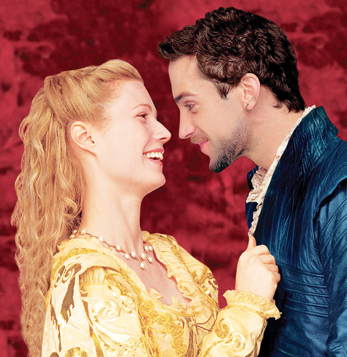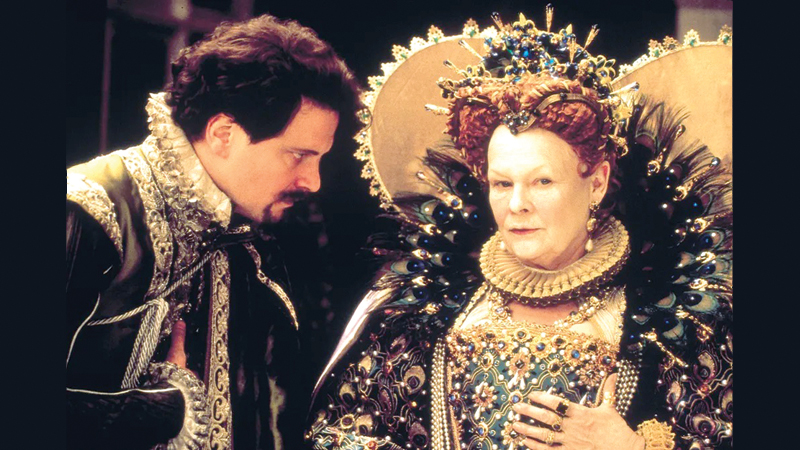I deliberately dove into “Shakespeare in Love”, and I have read some critics impartially call it as a glimmer of hope.
I am too moved by this specific flicker of hope that lives with “Shakespeare in Love”- a 1998, screenplay which was co-written by Marc Norman, American screenwriter and novelist and Tom Stoppard, Czech-born British playwright and screenwriter. I would rather prefer calling “Shakespeare in Love” as an appealingly and exquisitely grasped accolade for the rush, dash and dart of imaginative faculty.
Settling myself with my inventive imaginations, I found myself being occupied with an engaging and luscious fiction that deals with Corny romance between Will Shakespeare and incredibly cash rich and well-heeled Viola de Lesseps who is engaged to tie the knot with insolent and disdainful but off-the-cuff Lord Wessex; it is undeniably an alluring romance which made Will motivated in order to pen Romeo and Juliet which is predominantly due to the fact that it plays out as a form of mirror of that very play.
 Will Shakespeare is the central character among other actors. English actor Joseph Fiennes is the ideal acting synonym that keeps Will alive. Will, a freelance playwright shagging about in acquisitive and voracious 16th century London, struggling to locate his afflatus and get rid of writer’s block, finds his long awaited sanctuary in dazzling Lady Viola, played by American actress Gwyneth Paltrow.
Will Shakespeare is the central character among other actors. English actor Joseph Fiennes is the ideal acting synonym that keeps Will alive. Will, a freelance playwright shagging about in acquisitive and voracious 16th century London, struggling to locate his afflatus and get rid of writer’s block, finds his long awaited sanctuary in dazzling Lady Viola, played by American actress Gwyneth Paltrow.
Brilliant
The jet set and haut monde Lady Viola who belongs to the calibre of easy-on-the eye is bewitched by the power of dramaturgy and troupe but is already engaged and held accountable for conventional sabre-rattler Lord Wessex played by English actor Colin Firth.
The film that is a brilliant piece of work itself is a novel approach that has taken its concern on a variety of justified facts of the Bard’s life and times, notably from his 16th century play Romeo and Juliet.
However, the film just does not focus on a so-called delusion on the stories surrounded by the origins of Romeo and Juliet; it instead considerably structures the story where a degree of authenticity is added as much as what the Bard himself had added into the elegance of his original play of Romeo and Juliet.
Visible heedlessness and rashness of love stand as the most noticed theme. The theme achieves a tremendous sense of significance. “You will never age for me, nor fade, nor die. Viola De Lesseps: Nor you, for me”, being one of the most light-hearted and seductive lines heard within the film.
With the storyline keeps on flowing, my interest drives into an often heard statement of the movie. Marc Norman and Tom Stoppard write “Will emerges from the theatre into a street throbbing with nefarious life – whores, cutpurses, hawkers, urchins, tract-sellers, riffraff of all kinds in an area of stews (lowdown pubs), brothers and slums”.
Countless layers of passion and satire, distinguished within the movie, resemble an experience of mystic self-transcendence that are sometimes prevalent in the plays of the Bard, one of the greatest literary legends whose influence is still tremendous on the students of English literature.
Writer’s block
As an American satirist and cultural critic, H. L. Mencken says, love, portrayed within the movie is ostensibly peculiar and strange on its surface, however in contrast, it has its own concealed glamour and elegance underneath. Will is in despair where he is hungry for the sincere sense of inspiration required for his next piece of artistic work as he fights with the writer’s block which has not been a strange phenomenon even with the legendary writers.
Composed with sagacious wit, drollery and sown together with coherence and cohesion, the film proves to be a reverie about the Bard and that of his times. A wealthy style assimilates and embodies with the history of Shakespeare and his earned inspiration that puts embargo on the writer’s block; breathtaking and enchanting writing styles are the forte of Norman and Stoppard.
The engrossing and intriguing presentation about the stage of the Elizabethan era, playhouse and the lifestyle augment the gravity of the screenplay. With such an exceptional cast and conspicuously delightful storytelling, the film would take you into the fascinating and creative world of Shakespeare.









